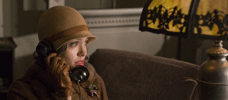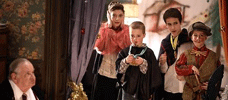Reviews
Cztery noce z Anna
Jerzy Skolimowski
Poland / France, 2008
Credits
Review by Jenny Jediny
Posted on 22 October 2008
Source 35mm Print
Categories The 46th New York Film Festival
The grim, pallid landscape in Four Nights with Anna encapsulates Leon, the man we’ll accompany on several nights’ journeys breaking into and entering Anna’s bedroom. Here Leon will paint her toenails in cherry red, slip an engagement ring on and off her finger, and attempt to repair a cuckoo clock, all while Anna sleeps soundly, aided by the drug he’s added to the sugar bowl she uses for her evening tea. This pitiable state of obsession is the odd case study envisioned by Jerzy Skolimowski, certainly inviting judgment on lonely Leon, but not necessarily condoning the conclusions.
Skolimowski appears fond of guessing games, setting us up from the start with a gruesome severed hand Leon deposits in a furnace, later increasing the mystery by manipulating the structure of the film’s timeline—the cut-aways to police interrogation imply only the worst in this strange little man who seems intent on perverse behavior. While it’s fairly clear that Leon’s “met” Anna before (he witnessed, and did not try to prevent her brutal rape and beating), his purpose in finding her again is left for us to surmise. Leon evidently has psychological issues; lacking scruples as he monitors Anna’s whereabouts, and intricately schemes to gain entry into her home, but he keeps himself at a distance even when he’s hovering mere inches above her sleeping head. With his vaguely designed intentions only somewhat revealed by the end of the film, more attention is given to this almost suspended moment in time and its wretched nature—these four nights are the closest Leon will come to having an actual “relationship” with a woman.
It’s a disquieting film to watch at times; there’s the obvious issue of stalking, compounded by Leon’s social anxiety and troubled mentality. A poorly paid cremator recently released from prison (and working for the same hospital as the object of his affection), Leon lives with his ailing mother and has - expectedly - no friends, avoiding direct contact with others. There is also the unfortunate discomfort in our joining Leon during his spying games, which bear that infamous Hitchcockian feeling of creating great anxiety over the perpetrator being caught, rather than fearing for the victim’s safety. This eventually fades into a weird acceptability, since Leon really isn’t harming anyone but himself, as his fantasy of “saving” Anna crumbles under the weight of reality.
Devoid of eroticism, Four Nights with Anna is a curious film—I imagine someone more familiar with Skolimowski’s work than myself may have an easier time placing this within his acclaimed filmography. In terms Eastern European cinema, there are traces of Kieslowski in its studious nature and quietness, but - at least in terms of Kieslowski’s later work - it refuses any humanist uplift, any sign of connectedness within the vast universe. With its heightened sound design it’s almost too pointedly pitch-black, recalling the dark humor of a director such as Juraj Herz (who also directed a very sinister film involving cremator) but is a bit too enveloped in its own dreariness. More precisely, we have a cold and dark plunge that refuses to settle not only the feelings and incidents that occur within Four Nights with Anna, but also the uneasiness likely to remain after watching Leon unblinkingly accept his forlorn life.
More The 46th New York Film Festival
-

Wendy and Lucy
2008 -

The Northern Land
2008 -

The Last Command
1928 -

Hunger
2008 -

Lola Montès
1955 -

Summer Hours
2008 -

Gomorrah
2008 -

Changeling
2008 -

Che
2008 -

I’m Gonna Explode
2008 -

Waltz with Bashir
2008 -

Happy-Go-Lucky
2008 -

The Windmill Movie
2008 -

Tulpan
2008 -

Afterschool
2008 -

A Christmas Tale
2008 -

The Headless Woman
2008 -

Bullet in the Head
2008 -

Four Nights with Anna
2008 -

Night and Day
2008 -

The Class
2008
We don’t do comments anymore, but you may contact us here or find us on Twitter or Facebook.



